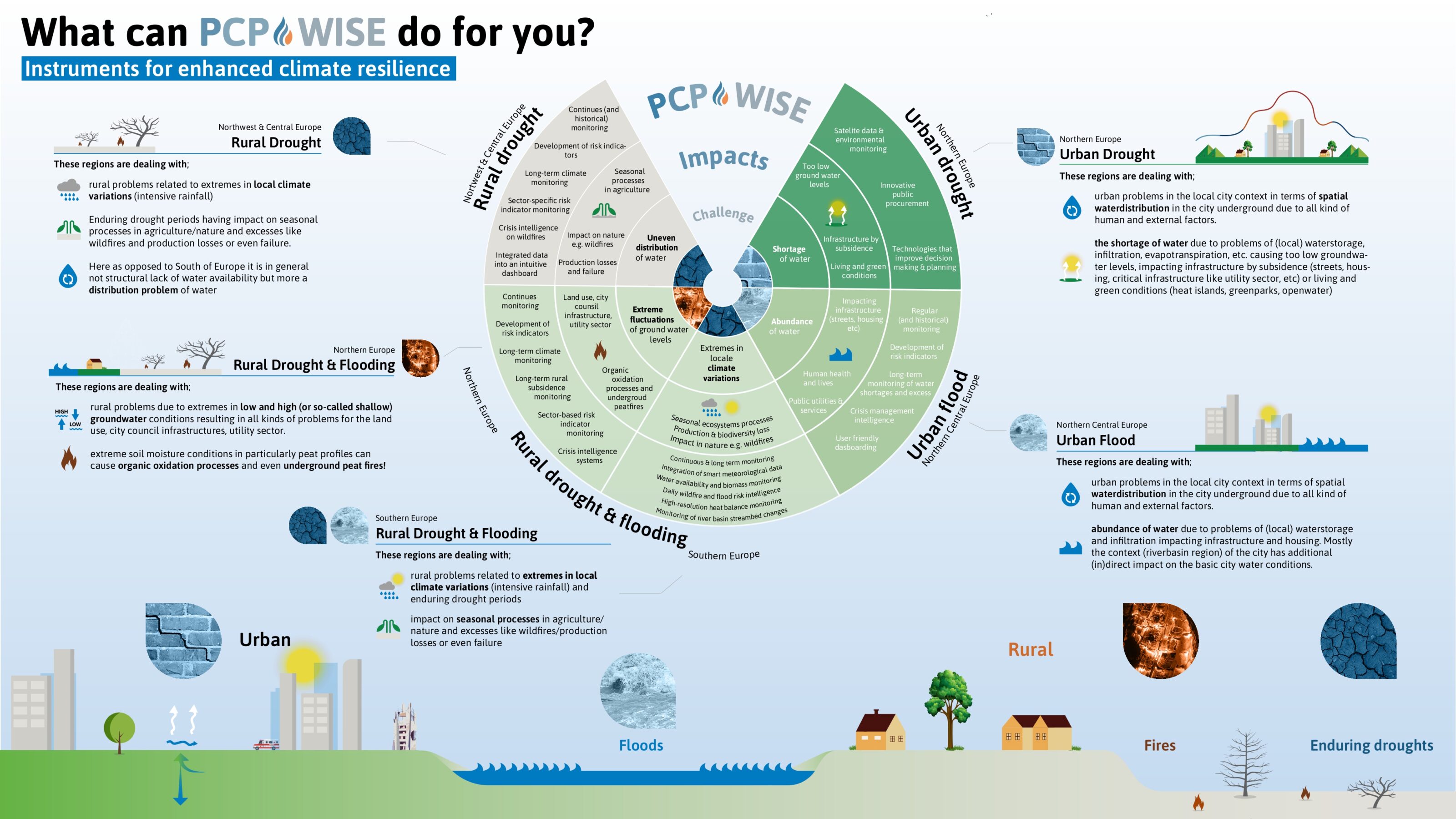Challenges & use cases
The envisaged future Pre-Commercial Procurement (PCP) is intended to be launched to reinforce public demand-driven innovation on the climate adaptation domain. PCP has the potential to be an effective demand-side innovation action and a useful tool to close the gap between supply and demand for innovative solutions. Solutions are expected to achieve TRL 7-8 at the end of Phase 3.
The future PCP should deliver successful innovative and fully tested product(s) and/or service(s) that meet the common need of the Public Buyers Group to procure research, develop innovative marketable solutions, speed up the time-to-market and provide best value for money.
The Public Buyers Group aims to develop an innovative solution to tackle the five use cases concerning climate adaptation, namely:
Use Case 1: Urban Drought (Northern Europe)
📄 Download the factsheet
Partners: Forum Virium Helsinki (Finland), City of Rotterdam (NL), City of Haarlem (NL), STOWA (NL).
Focus is on urban drought issues in North-Western Europe, dealing with water distribution problems in city undergrounds due to various human and external factors. This use case aims to mitigate water shortages impacting infrastructure and living conditions.
Use Case 2: Urban Flooding (North-Central Europe)
📄 Download the factsheet
Partners: Slovak Environment Agency (Slovakia), Ministry of Interior of the Slovak Republic (Slovakia), Forum Virium Helsinki (Finland), Klimatorium (Denmark), THW (Germany).
It addresses urban water excess in Eastern and Northern Europe, where the abundance of water affects city infrastructure. This use case focuses on managing water storage and infiltration issues exacerbated by regional factors like sea-level rise.
Use Case 3: Rural Drought (Northwest-Central Europe)
📄 Download the factsheet
Partners: Grenspark Kalmthoutse Heide (Belgium, Netherlands), Slovak environment agency (Slovakia), Ministry of Interior of the Slovak Republic (Slovakia), STOWA (NL).
It tackles rural drought in North-Eastern Europe, where extreme climate variations impact agriculture and nature, leading to issues like wildfires and production losses.
Use Case 4: Rural Drought & Flooding (Southern Europe)
📄 Download the factsheet
Partners: IEEC/ICGC (Spain), Region of Central Macedonia (Greece).
It deals with rural drought and flooding in Southern Europe, where structural drought periods and intense rainfall affect agricultural processes and cause significant production challenges.
Use Case 5: Rural Drought & Flooding (Northern Europe)
📄 Download the factsheet
Partners: Klimatorium (Denmark), THW (Germany), STOWA (supported by HDSR) (NL).
It focuses on rural drought and flooding in North- Eastern Europe, addressing problems caused by extreme groundwater conditions that impact land use and infrastructure. This use case aims to manage soil moisture conditions to prevent issues like organic oxidation and underground peat fires.
Additional information on the use cases can be found in the Tender Documents, Part 1, Annex 1.
Click here to download the PDF Infographic.




